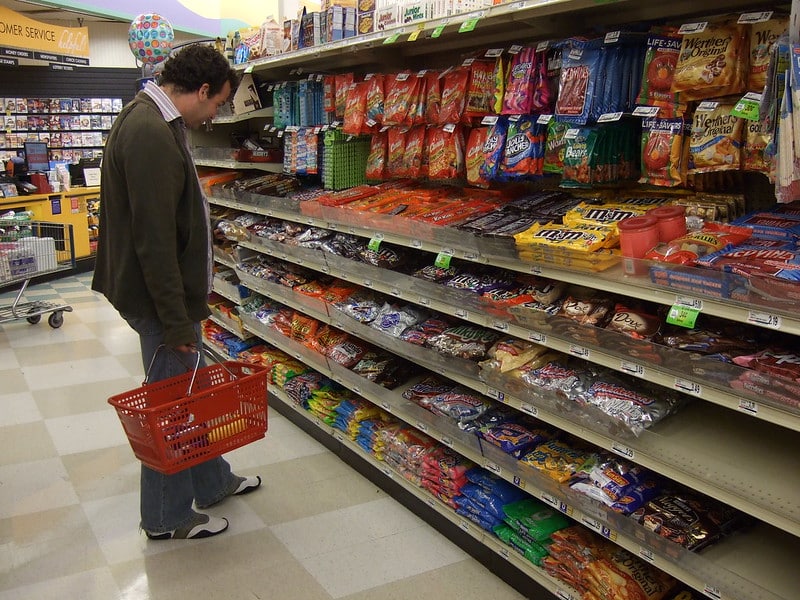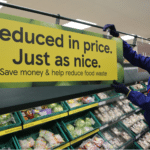
Have you ever checked out with a chatty grocery cashier, who comments on your purchases while scanning them and asks you who that ice cream is for and what you’re going to do with all those chips?
They mean well, and are just trying to be friendly. But if one grocery executive has his way, your local store could have a lot to say about your food choices – and not just to make conversation.
Grocery loyalty programs already give us access to weekly sale prices and digital coupons. But the CEO of Britain’s largest supermarket chain is courting controversy by suggesting they could do so much more, like alerting you to upcoming sales, suggesting complementary products to what you’re purchasing – and scolding you for putting too many unhealthy items into your cart.
“I can see it nudging you, saying: ‘I’ve noticed over time in your shopping basket that your sodium salt content is 250% of your daily recommended allowance. I would recommend you substitute this, this and this for lower sodium products to improve your heart health’,” Tesco CEO Ken Murphy told a retail summit on Tuesday. It’s “very simple stuff,” he said, which could “help to bring your shopping bill down, reduce waste and improve the outcome and the power of that Clubcard.”
Anyone who’s a loyalty card holder knows the programs are capable of doing this, since by their very definition, they know everything we purchase. But do we want them doing this?
Tesco’s Clubcard program already “sees how you buy and it deducts who you’re buying for,” Murphy said. “It probably knows the age of your kids, knows the gender of your kids.” But instead of using that information just for marketing purposes, monitoring the healthiness of your purchases could “really improve people’s daily lives,” he said.
His comments – and the prospect of your own local grocery store following his lead – are already raising concerns about privacy. They also call into question just what the role of a retailer, or the government, should be in encouraging healthy choices. On the one hand, brands and retailers are often criticized for promoting profitable unhealthy foods. But efforts to encourage healthier habits, like restricting in-store junk food displays, or taxing sugary drinks, are criticized by others for going too far.
“Mr. Murphy’s comments should alarm everyone and serve as evidence that loyalty card schemes are based on mass-scale surveillance of customers,” privacy advocate Jake Hurfurt of the UK-based group Big Brother Watch told the Daily Telegraph. “It is astounding that Tesco’s CEO wants to use this data to tell us how to live our lives… Tesco has no right to make judgments about what’s in our baskets or nudge us on what we should and should not be buying.”
You may not want your grocery choices critiqued. But Murphy believes that’s only the start. As artificial intelligence capabilities improve, he said loyalty programs could do your deal-seeking for you. “This could mean telling customers they should wait a week to stock up on products if Tesco had an offer coming up that could make their shop cheaper,” the Telegraph reports. The goal, Murphy said, is for customers to feel that their “Clubcard is literally doing their job for them and making their lives easier.”
Doing your job for you – or doing the job of your doctor or public health official or your own guilty conscience. Think about that the next time you put ice cream or chips in your shopping cart. That chatty cashier commenting on your purchases could soon be replaced by a nagging loyalty program that pushes you to make healthier choices – or else.
Image source: Yun Huang Yong










